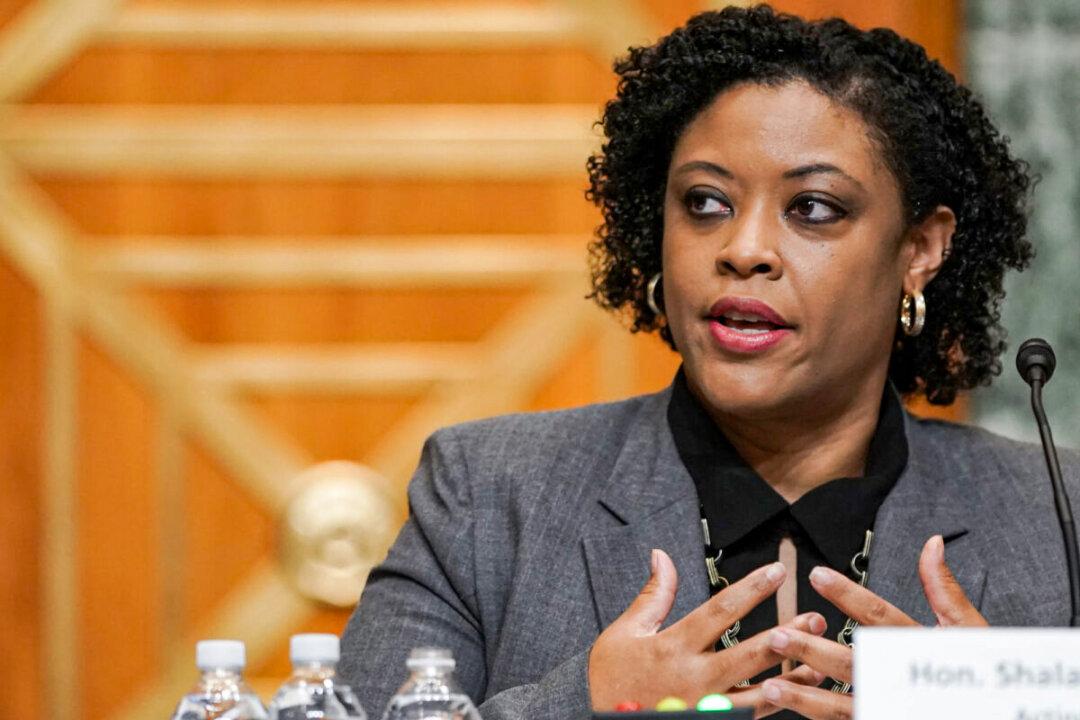Office of Management and Budget Director Shalanda Young testified on March 29 about President Joe Biden’s proposed $5.8 trillion fiscal year 2023 budget, which was released a day earlier, more than a month after it was due on the first Monday of February.
Young spoke before a hybrid hearing of the House Committee on the Budget, which includes 21 Democrats and 16 Republicans.





